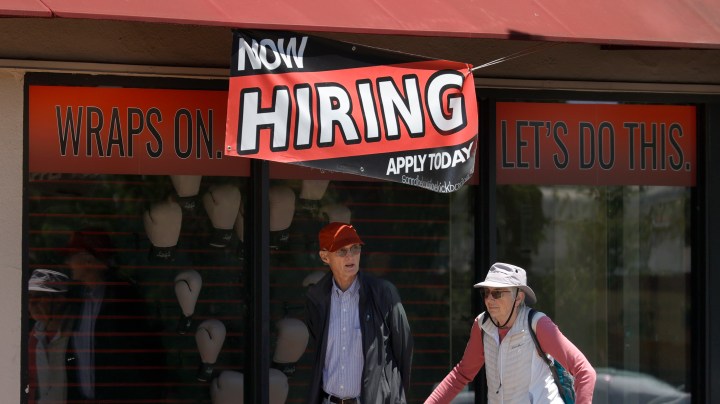
Job openings are still near record highs — and still outnumber applicants
Job openings are still near record highs — and still outnumber applicants

Job openings fell in April by about half a million, according to the latest federal data in the Job Openings and Labor Turnover survey, or JOLTS.
For context, openings declined just slightly from the month before, which boasted the highest level ever recorded. The number of people quitting jobs in April also remained near historic highs, and layoffs hit a new low. All that is to say, the labor market is still pretty dang tight.
Yet this might be as tight as it’s gonna get, said Daniel Zhao with job site Glassdoor.
“That doesn’t mean we’re about to head into a recession, it just means that the labor market might normalize,” he said. “It might be a little bit slower, but ultimately it’s still healthy.”
There are still about 1.9 job openings for every unemployed person. On the one hand, that’s good for workers, per Elise Gould at the Economic Policy Institute.
“We’re continuing to see hiring at a good rate. We’re continuing to see workers quit and search for better opportunities. What I see is a very strong recovery continuing,” she said.
But a labor market that stays too tight could contribute to inflation, as Federal Reserve Chair Jerome Powell explained during an interview with “Marketplace” host Kai Ryssdal last month.
“There’s more demand for workers than there are people to take the jobs, right now, by a substantial margin. And, because of that, wages are moving up at levels that are unsustainably high,” Powell said.
Trouble hiring could also hinder growth for some businesses — like the food tour company run by Avital Ungar, who’s struggling to staff up for what she hopes will be a busy summer season.
“We’d love to hire, you know, passionate foodies and actors, but obviously there’s challenges when it’s not a full-time job,” she said.
So far, it doesn’t look like the labor market is driving inflation, according to Betsey Stevenson, an economist at the University of Michigan. “We don’t see that inflation is the highest in sectors that have been paying workers more.”
Rather, she said, prices have shot up fastest for things that aren’t affected by the job market — like housing and energy.
There’s a lot happening in the world. Through it all, Marketplace is here for you.
You rely on Marketplace to break down the world’s events and tell you how it affects you in a fact-based, approachable way. We rely on your financial support to keep making that possible.
Your donation today powers the independent journalism that you rely on. For just $5/month, you can help sustain Marketplace so we can keep reporting on the things that matter to you.











